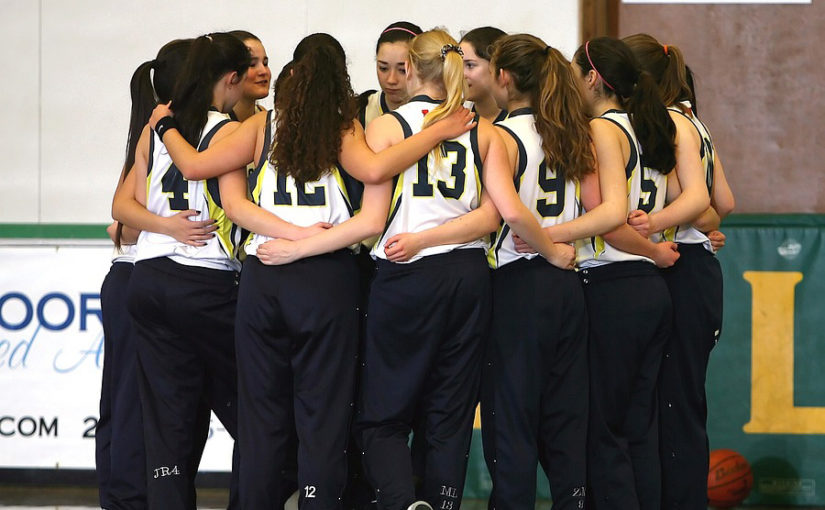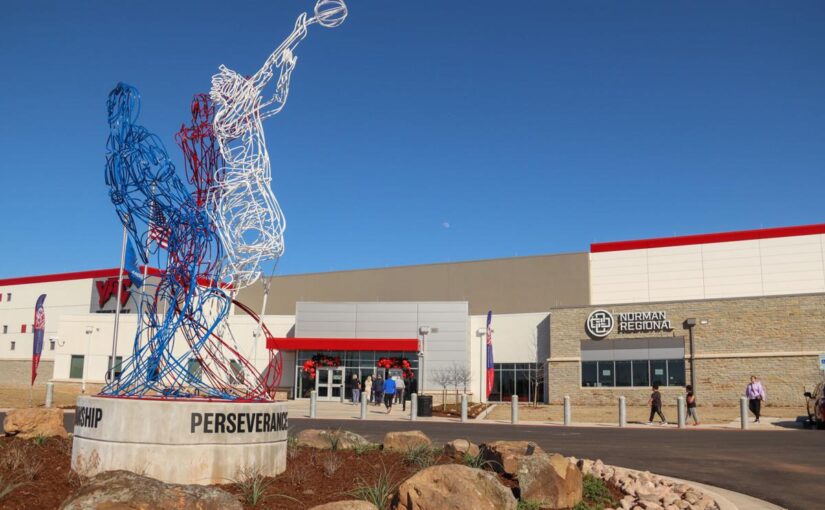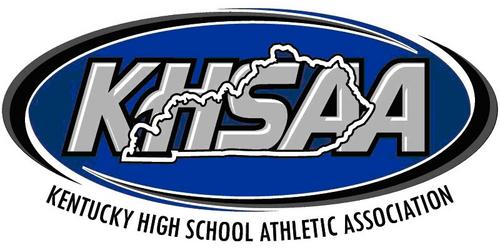Chip Off the Old Block
John Thompson III may be a legacy at Georgetown, but he’s proven after three seasons that he’s no daddy’s boy
COACH: You grew up in the Washington, D.C. area and played basketball for Gonzaga College High School, where in 1984 you were named first team All-Metro by the Washington Post. Talk about your childhood growing up as the son of a highly successful college coach? What kind of athlete were you?
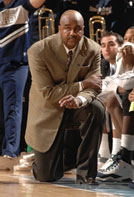
|
| John Thompson III |
THOMPSON: I’ve been asked, “What was it like growing up with your father here in D.C. and the success Georgetown was experiencing at the time.” I have no point of preference. It was just my life. It was what it was. Obviously, people were very cognizant of what my dad did. I probably got just as much stuff about Georgetown from fans as there was about Gonzaga. That’s just how it was.
I think I was an OK player. We had a pretty good team. I played football for a couple of years on the youth level. When I started high school, I just focused on basketball.
COACH: Did your father have an influence on you as a player? Based on his time restraints, was he able to be the doting dad at your games and practices and provide you with that fatherly advice most young athletes receive growing up?
THOMPSON: There’s no doubt he was there. No two ways about it. I would probably say that he went out of his way to treat my brother, Ronny, and I, and our younger sister, Tiffany, as a normal parent would. It wasn’t like when you hear the stories – not just about coaches but just people in general these days – of the fathers taking the kids and drilling them and really putting them on a strict regiment. By no means was it anything like that. It was the normal advice before and after games that every parent does.
COACH: Being that your dad was a high profile coach, we assume you were around many of his coaching cronies, such as Dean Smith. Did you absorb that knowledge? Did it help you as a young player that you knew the nuances of basketball and the ins and outs of the game?
THOMPSON: I think that as either a player or even as a coach, I’ve been around it all of my life. And there is so much that you learn just by osmosis. I remember when I first got a job as an assistant coach, several people said, well; this is your first year as a coach. There are so many lessons that you learn growing up in the house that many others don’t get the opportunity to learn until they are that graduate assistant, when they are 21, 22 years old. Without a doubt, you hear the talk and you watch the tapes. The life of a coach is not a 9 to 5 job. So many of my interactions with my dad centered around basketball and practice – listening, watching, and learning.
COACH: Following your scholastic career, you attended Princeton where you played for the legendary Pete Carril. As a forward, you rank third all-time with 358 assists, including 103 against just 34 turnovers during your senior season. How did you develop that pass first, shoot second approach?
THOMPSON: My coach told me that was what I was going to do, to tell you the truth. (Laughter). In high school I shot. That being said, I always took pride in my ability to pass the ball. It’s just something that I was blessed with. I was fortunate to have the ability to see. It’s hard to teach that. You can’t teach that. I think that was one of the things that attracted me to Coach Carril. I was extremely fortunate to have the opportunity to play for him. There are not many decisions that I make now, not many days that I don’t hear his voice in my head relative to one thing or another.
COACH: What was the most valuable lesson you learned during your collegiate playing days?
THOMPSON: I don’t think there is just one thing that jumps out at me. I would probably say coach’s commitment to the team, coach’s commitment to all of the guys. All of the hard work that he put into it. And just the understanding of sharing – that we are all into this together.
COACH: Your coaching pedigree speaks for itself: son of a Hall of Fame coach and pupil of another in Pete Carril, the latter whom you served as a five-year assistant. What have you learned from both in terms of X’s and O’s, player-coach relationships, time management, and the everyday duties a coach encounters?
THOMPSON: Just the hard work that goes into it. You look at just how similar those two guys are in terms of their dedication to the institution and dedication to the team – the commitment to the young men that we are fortunate to be able to work with and be able to coach. That’s the biggest lesson I think I’ve learned from both of them.
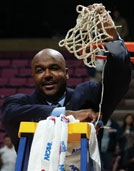 |
| John Thompson III |
COACH: You served four years as head coach at Princeton, your alma mater, where you guided the Tigers to three Ivy League titles, two NCAA tournaments, and an NIT appearance. How about your formative years coaching in the Ivy League and what you learned about yourself not only by coaching young men but also in developing and maintaining a winning philosophy?
THOMPSON: I don’t think in those terms. As I said, I’ve been fortunate enough to be born into the family that I was and I’ve been around the game my whole life. And I’ve been fortunate enough to not only play for but to work with Coach Carril. You just have to have a trust in your team and hopefully they will have a trust in you. That’s what we try to build, that’s what we try to establish. Each team is different and each year is different. You have to get the rhythm and have the flexibility enough to try to figure out how each year that group is going to win.
COACH: Who are some of your other coaching influences?
THOMPSON: My dad and Coach Carril are the two main ones. Obviously my high school coach, Dick Meyers, is another. The main thing I learned from Coach Meyers was the mental preparation – seeing things, thinking the games through instead of just going out there and playing. Visualization was something he stressed all of the time.
COACH: When you took over as the 17th head coach in Georgetown history, you spoke of a baby step approach in restoring the Hoyas’ rich basketball tradition. In this era of win now mentality, recruiting wars, and alumni pressure, how were you able to stay the course and incrementally build the foundation that led to a Final Four appearance?
THOMPSON: To get to the Final Four there are so many things that have to fall into place. Obviously the goal for most coaches is to win the national title. We had that goal as a program and as an institution when we came here. In many ways I also think you should forget about that goal and just come to work every day and see how we can improve. The baby step approach is not just a cute quote. It’s kind of how I operate and how we’ve tried to operate around here and just focus on the here and now, focus on improving, focus on getting better, and then the big picture items will take care of themselves.
COACH: How do you drill that mentality into the mindset of young, brash athletes, many of whom are used to being the man, scoring in bunches, winning right away, etc? What have you and your staff done specifically in allowing them to become patient and learn from the fruits of their labor for the good of the team?
THOMPSON: Just by talking about it. And they see how I approach things. They see how we almost methodically go through every day and every practice to the point where it just becomes a part of who they are also.
COACH: Perhaps the first notable victory at Georgetown under your leadership took place on Jan. 21, 2006 when the unranked Hoyas defeated then No. 1 Duke. It was Georgetown’s first victory over a top ranked team in 21 years. What did that win do for the momentum in developing your program? Is there such a thing as a signature turning point and how do you build on that?
THOMPSON: Personally, I would disagree with that being our first big win. Honestly, I would say my first year – it was the third game of my career here – we went down and beat Davidson on the road. I thought that was a huge win because Davidson was a very good team. We were able to go down there, against a veteran team, a well-coached team.
There are different ways to skin a cat. How we do things isn’t necessarily the only right way to do things. You go down to a difficult place to play, you play well, and the guys all of a sudden get confidence in what we’re doing and how we’re doing it.
What we came away with from the Duke game, I think, was obviously it was a very good win. It was on national television. And I think that a lot of people across the nation got the opportunity to see the progress that we were making.
COACH: Watching the Princeton Offense being run is a thing of beauty, with its pinpoint player spacing, movement without the ball, and seemingly effortless backdoor cuts. What are the keys to running that offense and how do you get players who are used to running and gunning reap the rewards of being patient and playing within a more structured, efficient style?
THOMPSON: I don’t think it’s more structured, to tell you the truth. We have more freedom with what we do than most people. I think that connotation is totally inaccurate. Our guys have more freedom and have the ability to make more decisions during the course of a play or the course of a game. We are the antithesis of being structured, actually. It’s not hard. It’s just playing basketball. I think too much is put into the quote, unquote Princeton Offense. We have very willing and unselfish players. The key is to be unselfish. And once you get unselfish guys that are skilled and want to win, it’s not that difficult.
COACH: Many people feel that the Princeton Offense is geared for more cerebral players. Not a lot of college teams run it. But the Sacramento Kings, New Jersey Nets, and Washington Wizards have used it successfully with NBA-caliber players. Is there a misnomer about the Princeton Offense and where and how it can be utilized efficiently?
THOMPSON: Those are the teams in the league that use more of the philosophy. But it’s a philosophy and it’s a way of looking at the game more so than it is a series of plays. I think the people in the league are just starting to scratch the surface on what it can do, to tell you the truth. Once you have the best players in the world adopting it, and they’re unselfish and playing together, it’s the best way to play and you’re going to have success.
COACH: Tenacious, man-to-man defense has been a staple at Georgetown dating back to the days when your father patrolled the sidelines. Talk about the program’s commitment to defense and how you get a player to buy into that mindset?
THOMPSON: It’s not a question of buying in. It’s not a democracy. And that’s relative to offense and defense. They are going to do things the way we want to do them. But I think we have a group of guys here who want to win and are committed to winning. Whether it’s man-to-man, whether it’s zone, I think it will vary and change. We will alter it and tweak it depending upon our personnel from year to year. But at the end of the day it’s a simple game – make shots and guard your guy. If you do those two things you can have some success.
COACH: What are your thoughts on the men’s basketball rules committee’s approval of moving the three-point line back one foot – from 19 feet, 9 inches to 20-9?
THOMPSON: I like it. I think it’s a good thing. We will see what affect it has. You can debate back and forth whether it will affect the game or not. I think it will give a little more space, a little more freedom.
COACH: Jim Boeheim has been adamant in his argument that if you’re going to lengthen the three-point line, you should also open the lane. Can you do one without the other?
THOMPSON: I think we should widen the lane a little bit. For the same reason, I think it will give you a little more space and a little more freedom. So we will see.
COACH: You have coached at two pillars of academia in Princeton and Georgetown. How involved are you when it comes to your players’ studies and ensuring that they are able to balance the time restraints required of being a student-athlete?
THOMPSON: In this day and age you have to be involved. Obviously playing basketball is essential and winning games is essential, and if you don’t win you will end up getting fired. But at the same time we are trying to prepare young men for life. We are trying to prepare young men to fulfill their dreams and most of them do have a desire to play ball after college. At the same time you want to make sure that they are prepared if that dream isn’t realized. And you want them prepared if that dream is realized after their career is over. There’s a huge commitment, a huge obligation from that end.
COACH: Last season you were named the National Collegiate Basketball Hall of Fame Coach of the Year by the NABC. The previous two seasons you were honored with the Fritz Pollard Award as the Black Coaches Association’s Male Coach of the Year. Talk about your place as a prominent African-American coaching role model and how you influence young, aspiring black coaches in the high school and lower-level college ranks?
THOMPSON: I don’t think big picture. You have a commitment and an understanding that, as much as our jobs are dependent upon winning, we have a bigger responsibility than that. And that is helping and preparing young men for life.
COACH: Talk about the importance of the family support structure being a coach, an important aspect that is sometimes overlooked? Obviously it is imperative to have an understanding wife and children.
THOMPSON: In this business, if you don’t have an understanding spouse, you’re not going to have success. Because it’s a year round job, it’s a 24-hour a day job. The support you get at home and the ability to do your job are related. Having a supportive wife is essential. And I am extremely fortunate that my wife understands the demands of the job.
COACH: Having majored in politics at Princeton, how has that aided you, if at all, in working the referees and getting your point across in a more democratic nature?
THOMPSON: I don’t think it does one bit (Laughter).
COACH: Can we expect to see you have a white towel draped over your shoulder – a la your dad’s trademark look on the sidelines – in the future?
THOMPSON: You know, it depends. It’s not like I have ruled it out. But I’m not going to do it just because he did it.
About the Author
Kevin Newell is the former editor of Coach and Athletic Director magazine.

